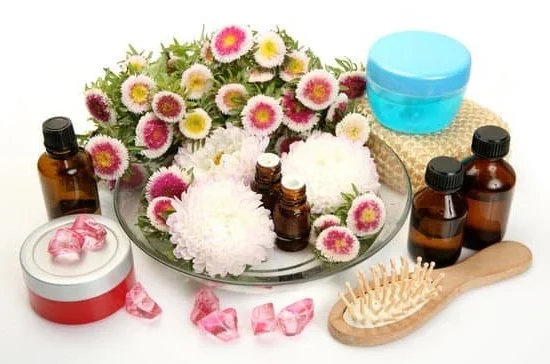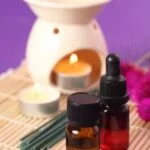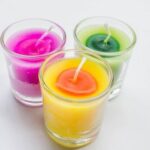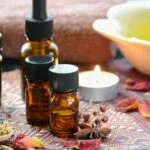Are you tired of using harsh chemical cleaners in your home? Have you considered making the switch to natural cleaning products but don’t know where to start? In this article, we will explore the world of aromatherapy cleaning products and how you can create your own at home. Discover the benefits of using aromatherapy for cleaning and learn how it can improve the overall cleaning experience.
Aromatherapy cleaning products are a great alternative to traditional chemical cleaners as they not only clean effectively but also provide added therapeutic benefits. By using essential oils in your cleaning routine, you can create a calming and uplifting atmosphere while eliminating germs and odors. In this section, we will delve into the world of aromatherapy cleaning products and discuss how they can transform your cleaning routine for the better.
Many people are becoming more conscious of what they use in their homes, especially when it comes to cleaning products. Essential oils play a key role in aromatherapy cleaning, offering natural scents and antimicrobial properties that can enhance the cleanliness of your space.
Understanding the different types of essential oils and their specific properties is important when creating aromatherapy cleaning products. After exploring the benefits of using aromatherapy for cleaning, we will discuss the various essential oils commonly used in homemade cleaners and their unique characteristics.
Understanding Essential Oils
Aromatherapy is a popular and natural way to clean your home, leaving a pleasant scent while providing various health benefits. Essential oils are the key ingredients in aromatherapy cleaning products, each with its unique properties and uses. Understanding essential oils is crucial to creating effective and safe cleaning solutions for your household needs.
Lavender essential oil, known for its calming effects, is a great addition to laundry detergents or fabric sprays. Its antifungal and antibacterial properties make it an excellent choice for cleaning and disinfecting surfaces. Lemon essential oil is a powerful degreaser and can be used in all-purpose cleaners or dish soap. Tea tree oil is popular for its antimicrobial properties, making it an effective ingredient in mold-fighting products such as bathroom cleaners.
When using essential oils for cleaning, it’s important to take safety precautions to avoid potential skin irritation or allergic reactions. Some essential oils are phototoxic, meaning they can cause skin sensitivity when exposed to UV light. Always dilute essential oils properly before use, and perform a patch test on your skin to check for any adverse reactions.
It’s important to note that not all essential oils are safe for use around children or pets, so it’s vital to research the specific properties of each oil before including them in your homemade cleaning products. By understanding the different types of essential oils and their specific properties, you can create customized aromatherapy cleaning products that are both effective and safe for your home environment.
| Essential Oil | Properties |
|---|---|
| Lavender | Calming, antifungal, antibacterial |
| Lemon | Degreaser |
| Tea Tree Oil | Antimicrobial |
Safety Precautions
When making aromatherapy cleaning products, it’s essential to prioritize safety throughout the entire process. Essential oils are highly concentrated and powerful substances that can cause skin irritation, allergic reactions, or even toxicity if not used properly. To ensure a safe experience when creating your own cleaning products using essential oils, consider the following tips and guidelines:
- Dilute properly: Essential oils should always be diluted with a carrier oil or water before being used in cleaning products. This helps to minimize the risk of skin irritation or other adverse reactions.
- Patch test: Before using any new essential oil in a cleaning product, perform a patch test on a small area of skin to check for any negative reactions.
- Avoid certain oils: Some essential oils may not be safe for use around pets, children, or individuals with certain medical conditions. Research each oil thoroughly before incorporating it into your cleaning products.
- Use protective gear: When handling undiluted essential oils, wear gloves and ensure proper ventilation to prevent exposure to the concentrated vapors.
In addition to these precautions, it’s crucial to follow specific guidelines when creating and using aromatherapy cleaning products at home. Always refer to reliable sources for recipes and instructions and seek advice from professionals if needed.
Lastly, remember that while essential oils offer numerous benefits for natural cleaning solutions and aromatherapy experiences, using them safely is key to fully enjoying their advantages without any negative consequences. By following these safety precautions and guidelines, you can confidently make your own aromatherapy cleaning products at home while prioritizing the well-being of yourself and those around you.
DIY Aromatherapy Cleaning Recipes
Aromatherapy cleaning products are a fantastic way to freshen up your home while also enjoying the benefits of essential oils. Making your own natural cleaning products is easier than you might think, and it allows you to customize the scents and properties to suit your preferences. In this section, we will provide step-by-step instructions on how to create various cleaning products such as all-purpose sprays, floor cleaners, and air fresheners using essential oils.
To make an all-purpose spray for surfaces in your home, you will need a glass spray bottle, water, white vinegar, and essential oils of your choice. Simply fill the glass spray bottle with equal parts water and white vinegar, then add around 20-30 drops of essential oil. Some great options for cleaning include lemon, tea tree, lavender, or eucalyptus oil. Shake well before use and spray on surfaces before wiping clean with a cloth.
For a natural floor cleaner, mix together ½ cup of distilled water, ½ cup white vinegar, 10 drops of essential oil (such as peppermint or pine), and a few drops of liquid dish soap. Use this solution to mop your floors for a refreshing and effective clean that also leaves behind a pleasant aroma.
To create an air freshener using essential oils, simply combine 1 cup of water with 2 tablespoons of vodka (or rubbing alcohol) in a spray bottle and add in around 20 drops of your favorite essential oil. Shake well before each use and spray around your home as needed to eliminate odors and freshen up the air. Now that you know how to make aromatherapy cleaning products at home.
Benefits of Using Aromatherapy Cleaning Products
Aromatherapy cleaning products offer a range of benefits that make them an attractive alternative to conventional chemical cleaners. One main advantage is the use of natural ingredients, such as essential oils, which not only clean effectively but also provide aromatherapy benefits for mental and emotional well-being. By harnessing the power of nature, these products can enhance the overall cleaning experience and contribute to a healthier home environment.
Essential oils are a key component of aromatherapy cleaning products and are known for their potent antibacterial, antiviral, and antifungal properties. For example, tea tree oil is recognized for its powerful disinfectant properties, while lavender oil is celebrated for its calming effects. Understanding the specific properties of different essential oils allows for tailored cleaning solutions that target specific needs within the home.
In addition to the health benefits, using aromatherapy cleaning products also has environmental advantages. Many conventional household cleaners contain harmful chemicals that can pollute the air and water, as well as contribute to indoor air pollution. In contrast, natural aromatherapy-based products reduce exposure to these toxins and help create a cleaner indoor and outdoor environment.
| Advantage | Description |
|---|---|
| Natural Ingredients | Essential oils provide effective cleaning while offering aromatherapy benefits. |
| Potent Properties | Essential oils have antibacterial, antiviral, and antifungal properties that are effective in cleaning. |
| Environmental Impact | Aromatherapy cleaning products reduce exposure to harmful chemicals and contribute to a cleaner environment. |
Overall, by exploring the advantages of using natural and aromatherapy-based cleaning products over conventional chemical cleaners, individuals can make informed choices that benefit both their health and the environment. With proper knowledge on how to make aromatherapy cleaning products at home using essential oils, it is possible to create effective and safe alternatives for a more holistic approach to cleanliness.
Environmental Impact
Reduced Chemical Exposure
One of the most significant environmental benefits of using aromatherapy cleaning products is the reduced exposure to harmful chemicals. Traditional household cleaners often contain harsh chemicals that can be detrimental to both the environment and human health. By opting for natural essential oils and plant-based ingredients, you can minimize the release of these harmful substances into the air and water, creating a healthier living environment for yourself and others.
Sustainable Ingredients
Many aromatherapy cleaning products use sustainable and renewable ingredients, which contribute to a healthier planet. Essential oils are typically derived from plants through responsible harvesting practices, ensuring that these resources are used in an environmentally friendly manner. Additionally, by choosing eco-friendly packaging and reusable containers for homemade cleaning products, you can further reduce your impact on the environment by minimizing waste.
Biodegradability
Another key environmental benefit of aromatherapy cleaning products is their biodegradability. Unlike commercial cleaners that may contain synthetic chemicals that persist in the environment for long periods of time, natural cleaning products made with essential oils break down more easily without causing harm to ecosystems. This means that when these products eventually make their way into the soil or waterways, they will naturally decompose without leaving behind harmful residues.
By making your own aromatherapy cleaning products at home using essential oils and natural ingredients, you can play a part in reducing your environmental footprint while still maintaining a clean and healthy living space. Making this switch not only benefits our planet but also promotes better indoor air quality and overall well-being for you and your family.
Tips for Storage and Usage
Dark Glass Containers
When creating homemade aromatherapy cleaning products, it’s important to store them in dark glass containers. This helps to protect the essential oils from light exposure, which can cause them to break down and lose their effectiveness over time. Additionally, dark glass containers prevent sunlight from altering the chemical composition of the cleaning products.
Cool and Dry Location
To maintain the potency of the essential oils in your homemade cleaning products, it is crucial to store them in a cool and dry location. Exposure to heat and moisture can degrade the quality of the oils, diminishing their cleaning properties. Therefore, keeping these products away from direct sunlight and high temperatures is essential for preserving their efficacy.
Dilution Ratios
When using aromatherapy cleaning products, it’s important to adhere to proper dilution ratios for safety and effectiveness. Essential oils are highly concentrated and should be diluted with water or carrier oils before use. Failure to dilute them properly can lead to skin irritation or damage surfaces they come into contact with.
Patch Testing
Before using any homemade aromatherapy cleaning product on a surface, it’s advisable to perform a patch test in an inconspicuous area first. This will help determine if the product is safe for use on that particular surface without causing any adverse reactions or damage.
Incorporating these tips for storage and usage when making and using aromatherapy cleaning products will ensure that they remain effective and safe for your household cleaning needs. By following these guidelines, you can enjoy the benefits of a naturally clean home while minimizing any potential risks associated with essential oil usage.
Conclusion
In conclusion, using aromatherapy for cleaning has a multitude of benefits ranging from its ability to naturally disinfect and deodorize surfaces to uplifting the mood and promoting relaxation during the cleaning process. Understanding essential oils is crucial when making aromatherapy cleaning products, as each oil comes with specific properties that can target different cleaning needs and provide various aromatic benefits.
It’s important to keep safety precautions in mind when creating these products to ensure that they are used effectively and without any harm.
By following DIY aromatherapy cleaning recipes, individuals can create their own all-purpose sprays, floor cleaners, and air fresheners using essential oils. These homemade alternatives not only offer a natural approach to cleaning but also have additional health benefits compared to conventional chemical cleaners. Additionally, the environmental impact of using aromatherapy cleaning products is positive as it contributes to a healthier planet by reducing the use of harmful chemicals and minimizing plastic waste from store-bought products.
In summary, making your own aromatherapy cleaning products at home is not only an easy and cost-effective way to clean your living space but also supports personal wellness and environmental sustainability. By understanding the properties of essential oils, practicing safety precautions, and utilizing DIY recipes for cleaning products, everyone has the opportunity to experience the many advantages of incorporating aromatherapy into their cleaning routine. So go ahead and give it a try.
Frequently Asked Questions
How Do I Make My Own Cleaning Products With Essential Oils?
Making your own cleaning products with essential oils is simple and cost-effective. You can create a multi-purpose spray by combining water, vinegar, and a few drops of essential oil. For a fresh-smelling carpet cleaner, mix baking soda with your favorite essential oil and sprinkle it on the carpet before vacuuming.
How Do You Make Scented Cleaning Products?
Making scented cleaning products can be easily done by adding a few drops of your preferred essential oil to your homemade or store-bought cleaning solutions. Essential oils like lavender, lemon, or eucalyptus can add a pleasant scent to your cleaning routine without the use of synthetic fragrances.
Can Essential Oils Be Mixed With Cleaning Products?
Yes, essential oils can be mixed with cleaning products as long as they are diluted properly and used safely. It’s important to research each essential oil for its cleaning properties and recommended dilution ratio before mixing it with other cleaning solutions.
Certain essential oils may have antibacterial or antifungal properties that can enhance the effectiveness of your cleaning products when mixed properly.

Are you looking for a natural way to improve your health and wellbeing?
If so, aromatherapy may be the answer for you.





